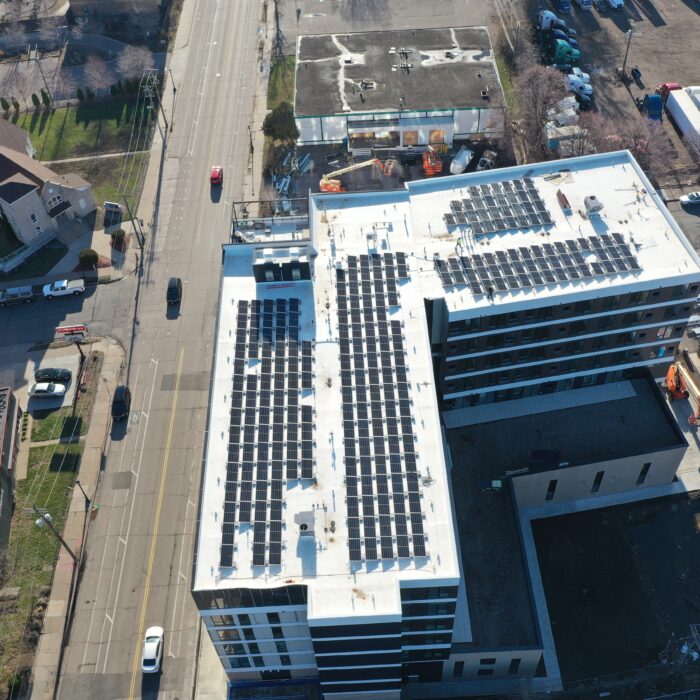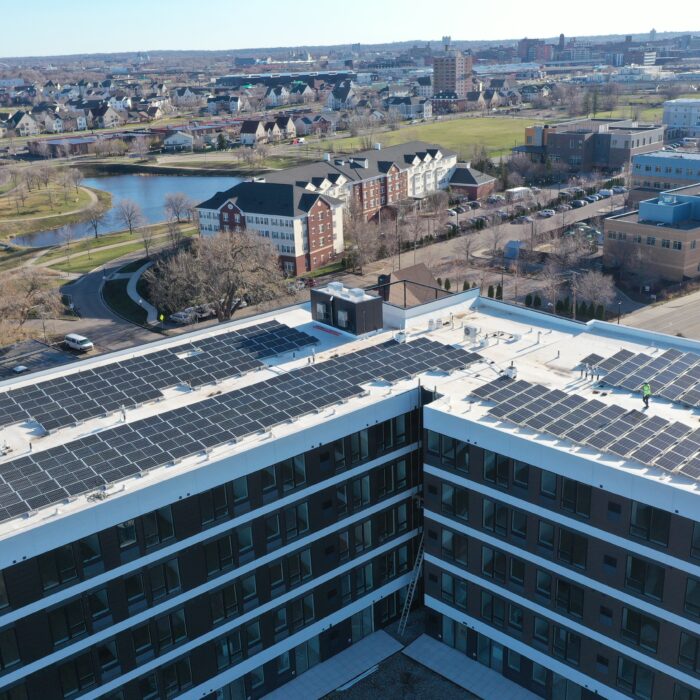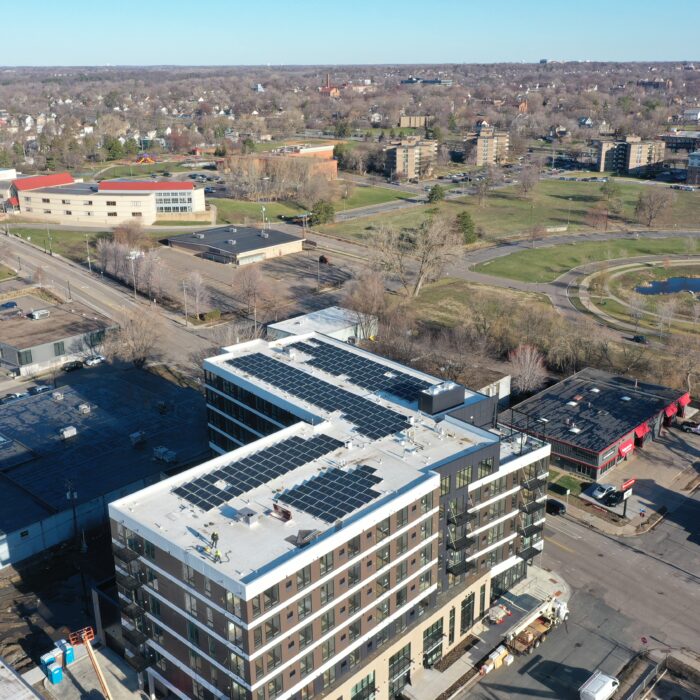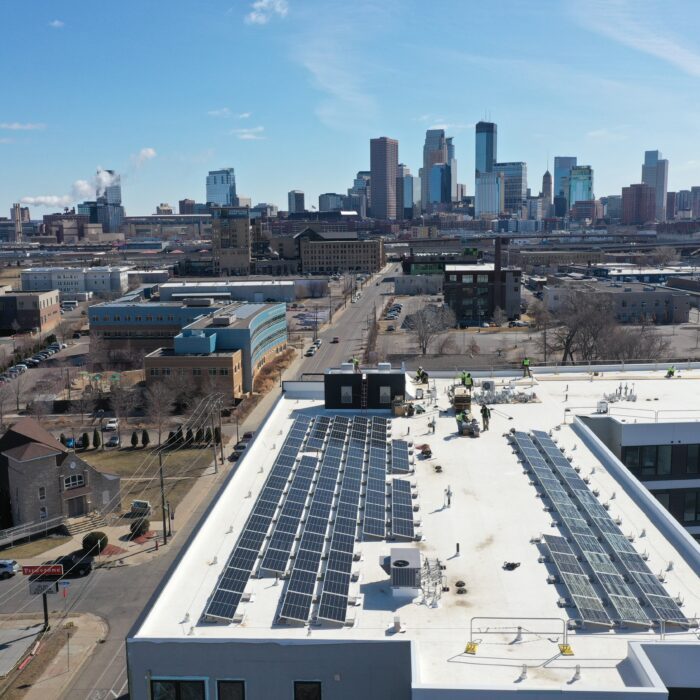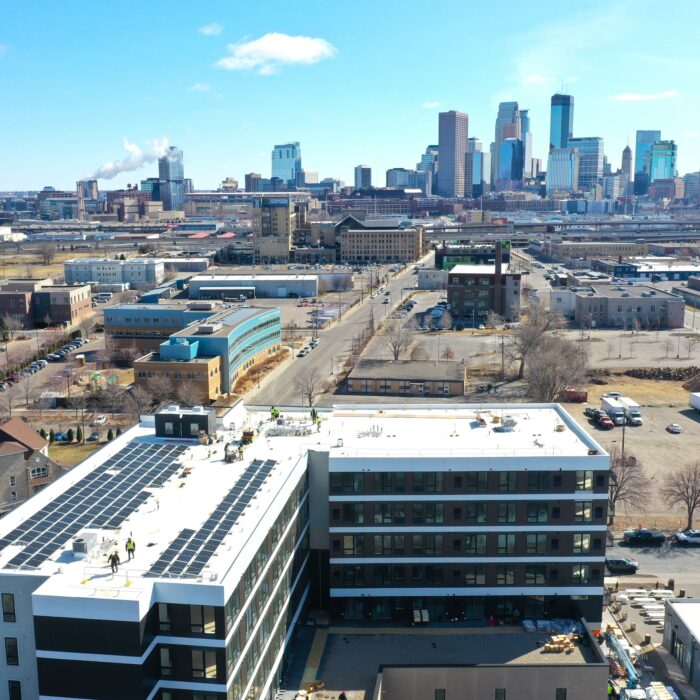Annual kWh Production
DC System Size
Annual CO2 Emissions Avoided (lbs)
Minneapolis, MN
Project Inspiration
Rise Modular is a volumetric modular construction company with 150,000 square feet of construction space in Owatonna, MN. For those unfamiliar with modular buildings, this method allows a construction company to assemble a large structure in small sections, indoors, complete with plumbing, electrical work, and finishes. These sections are then transported to the building site, where they are carefully stacked and assembled. This process enables the foundation and site work to proceed simultaneously with above-grade construction, significantly reducing project timelines. Modular construction also offers savings on shipping, storage, construction waste, and on-site energy use while minimizing weather delays. Additionally, it provides a climate-controlled work environment and a convenient commute for local tradesmen and women. Generally speaking, modular construction is leaps and bounds greener than traditional construction.
Approach
Cedar Creek Energy and Rise Modular combined sustainability forces at the recently completed Glenwood Apartments in Minneapolis. Located in an Opportunity Zone (an economically distressed area that offers tax incentives to encourage investment), the project features 127 apartments and community retail/commercial space. “When one of the partners at Cedar Creek Energy asked me to attend a meeting with Rise, I was so excited! I had been intrigued with their process and very interested to learn more about them.” said Erin Harvey, CCE Project Developer.
By the time Cedar Creek Energy got involved with the project, the development financing with Enterprise Community Partners had already been set, putting Rise in a position to have to ask for additional funds for the solar. “One stipulation around Opportunity Zone development is that owners must hold the property for at least 10 years. The solar offsets the common area electric bills, so ownership found those savings to be meaningful over a 10-year period.” said Lauren Byrne, Senior Director of Acquisitions at Enterprise Community Partners.
In addition to the 30% Federal Investment Tax Credit, this project received a grant from the City of Minneapolis Green Cost Share program and has applied for an extra 10% federal investment tax credit bonus. In total, the project could receive grant or Federal tax incentives of up to 83% of the project cost! Ownership was happy to see local incentives, as well as the Xcel PV Demand credit, which will stay with the project and shift to any future owner.
The Final Result
The solar installation at Rise Modular’s Glenwood apartment building is a testament to the effectiveness of combining modular construction with solar energy. The system’s 98.4 kW DC capacity produces approximately 113,000 kWh annually, contributing significantly to the building’s energy needs while avoiding over 170,000 pounds of CO2 emissions each year.
The addition of solar panels increases the property’s market value and contributes to its unique appeal, offering tenants the pride of residing in a sustainably built and powered building. In addition to 127 housing units and commercial space, the complex features co-working and maker spaces, a clubroom, rooftop deck, a fitness center, and outdoor green space.
Glenwood Apartments are an innovative sustainable development, enhanced by the integration of solar energy. This project serves as a model for future developments, demonstrating the tangible benefits of incorporating renewable energy solutions into modern multifamily housing.
